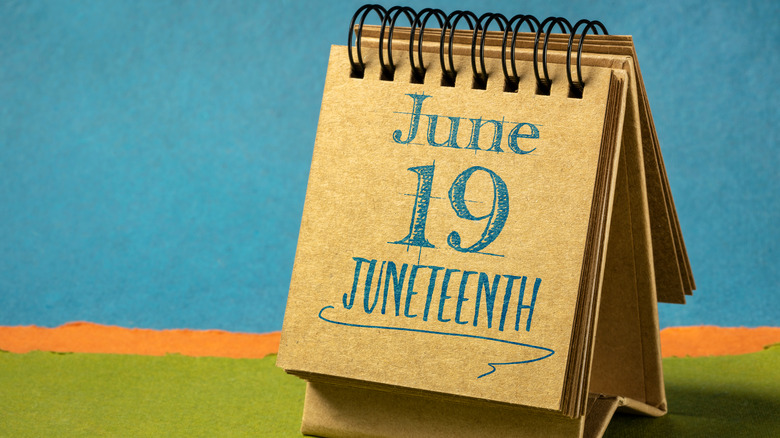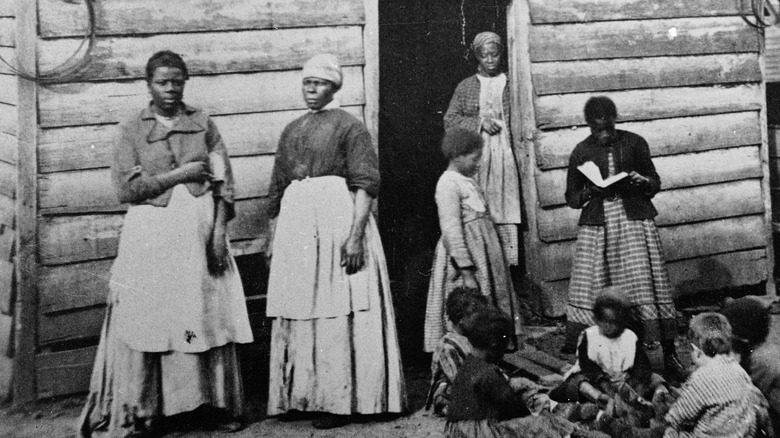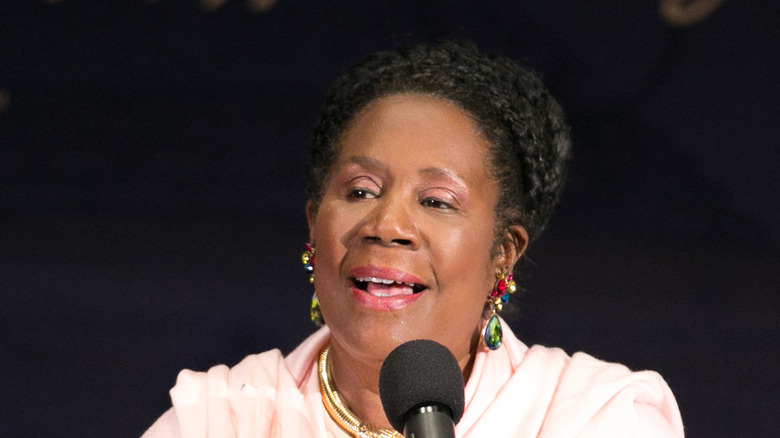We're About To Get A New Federal Holiday. Here's Why
It was once a day of liberation celebrated across most — but not all — states. Today, the historical date known as Juneteenth is set to become the newest federal holiday to be added to the roster of 11 dates which the United States considers to be of particular importance. These include Christmas Day and New Year's Day, as well as Independence Day, Memorial Day, Veterans Day, and Thanksgiving Day (via Redcort). The last time a federal holiday was signed into law, it was 1983, and the White House was occupied by President Ronald Reagan, who signed a bill establishing Martin Luther King, Jr. Day (via Politico).
The story of Juneteenth is tied to the story of the nation. While President Abraham Lincoln signed the Emancipation Proclamation, freeing all enslaved people on Jan. 1, 1863, many of those weren't told that they were free to go and that the war was over until June 19, 1865 — more than two years later. That was the day Union Major Gen. Gordon Granger brought soldiers to the city of Galveston, Texas, to deliver several messages: the war was over, the Union had won, and enslaved persons were free to go. If they chose to stay on the plantations and work, they should be treated as hired labor (via NPR).
Not all newly freed people were able to celebrate
Juneteenth — whose name combined "June" and "nineteenth" — was important in many ways. As one former enslaved person, Felix Haywood, put it, "Everybody went wild. We all felt like heroes ... just like that we were free. It didn't seem to make the whites mad, either. They went right on giving us food just the same. Nobody took our homes, but right off colored folks started on the move."
Prairie View A & M University, which documented Haywood's and other stories that unfolded during and after Juneteenth, showed just how the news was received through witness accounts.
"The n****** bellered and cried and didn't want to leave massa. He talked to us and said as long as he lived we'd be [cared] for, and we were ... He willed every last one of his slaves something ... My mammy got two cows and a pair of horses and a wagon and 70 acres of land," one was recorded as saying.
But others were not as lucky. "Before the war massa didn't ever say much about slavery, but when he heard we were free, he cussed and said, 'God never did intend to free n******,' and he cussed til he died. But he didn't tell us we were free til a whole year after we were."
The Juneteenth bill did not have unanimous support in the House
The federal government's declaration of Juneteenth as a federal holiday is a long time coming, since, as CNBC points out, Washington DC, as well as all but two states, already commemorate it as a holiday. The legislation passed unanimously in the Senate, and with 14 dissenting GOP votes in the House. After the bill was passed, its sponsor, Texas House Democrat Sheila Jackson Lee said, "It's not often when you can stand on the floor of the House and use the terminology, 'I feel full.' Let us come together. We are here to serve, and there's more to come, in changing lives, for justice, equality and freedom. That is what happened today" (via CNBC).
While the Juneteenth bill might not have enjoyed the unanimous support of all House members, its passage was far less dramatic than the process surrounding Martin Luther King, Jr. Day. Then, North Carolina GOP Sen. Jesse Helms had questioned whether King was "important enough" for the honor, and alleged that King was ideologically aligned with Marxists (via Politico).
President Joe Biden signs the bill into law today, and when that happens, Juneteenth will get a new name, too: Juneteenth National Independence Day.


